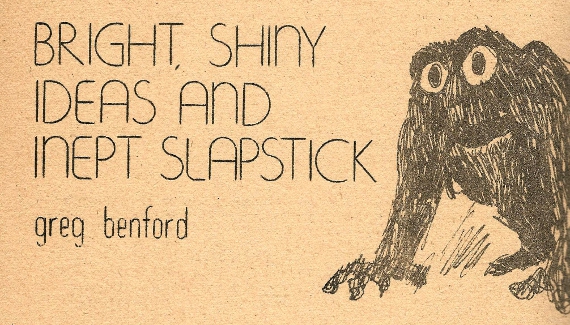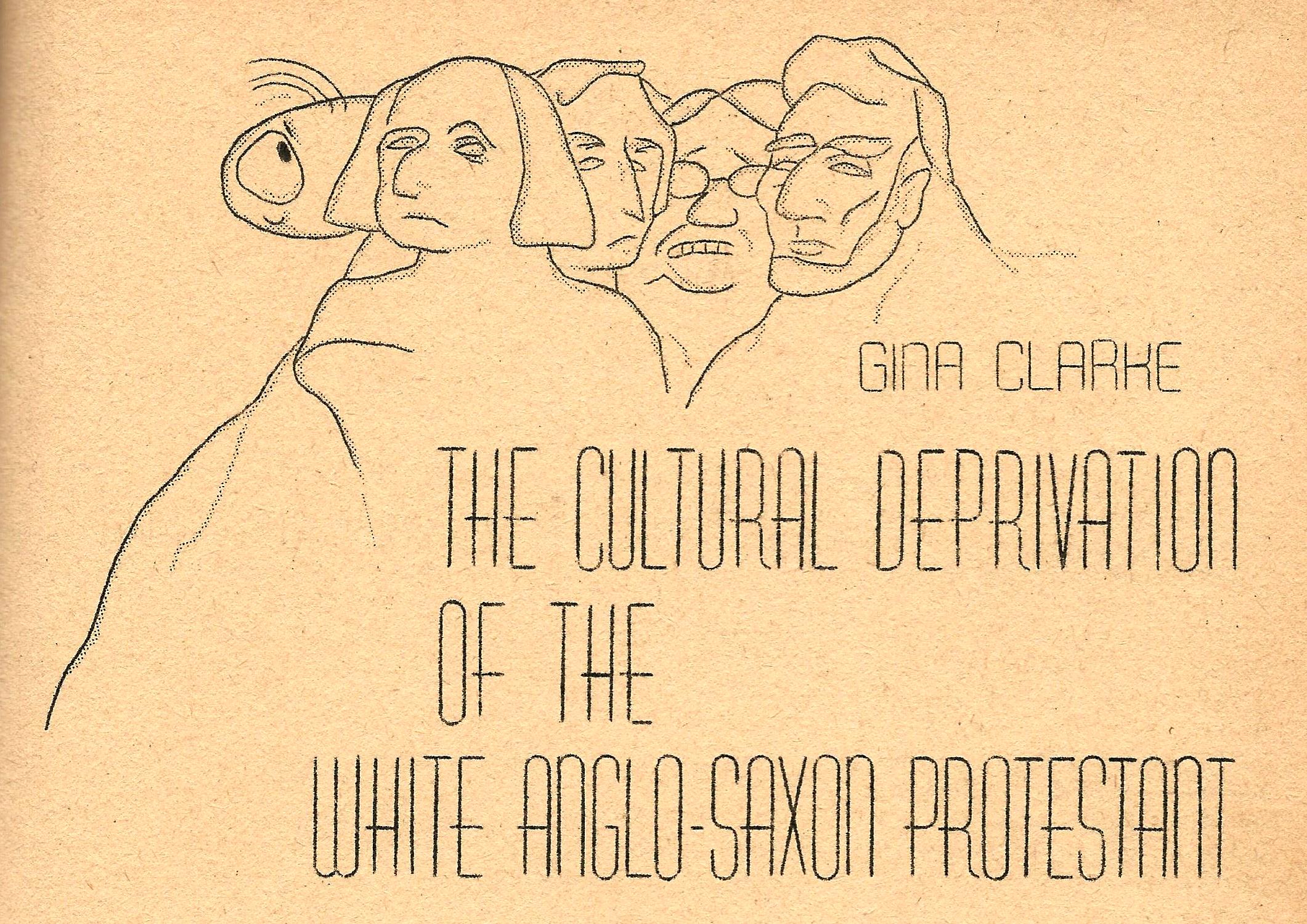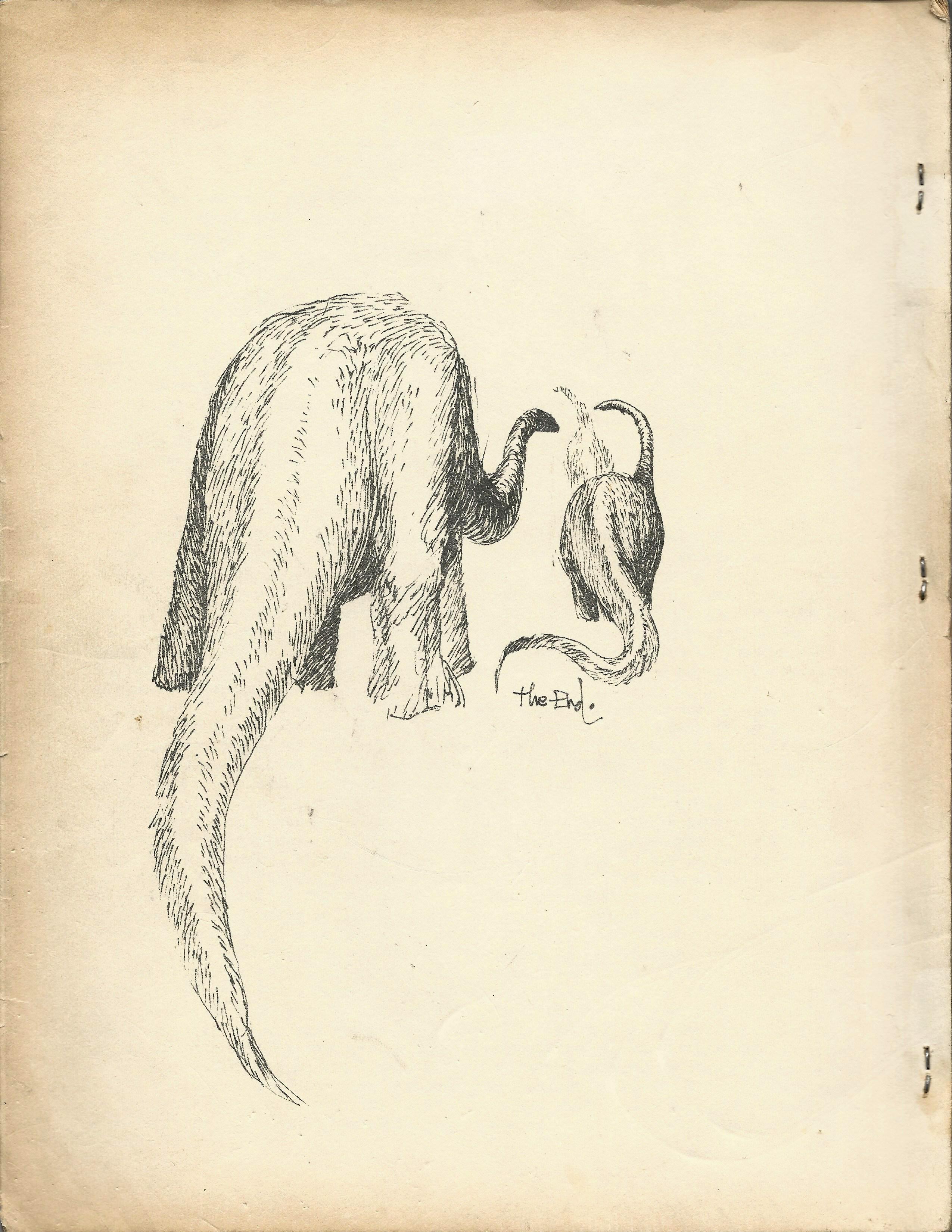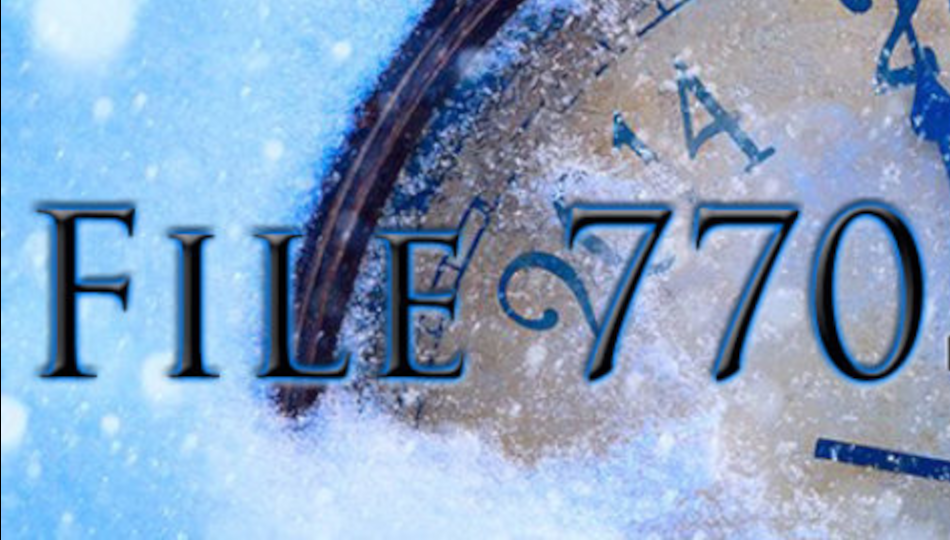
Fanzines reviewed: LIGHTHOUSE #14

(Art by Jack Gaughan)
Lighthouse (#14) October 1966 – FAPAzine/Genzine (available to anyone)
LIGHTHOUSE was published sporadically by Editor Terry Carr throughout the 1960s, all the while (1964-1971) working as an editor for Ace Books. In particular he was responsible for selecting first novels by new authors for “Ace Specials”; most famously Ursula K. Le Guin’s LEFT HAND OF DARKNESS (1969) and after returning to Ace in the 1980s, William Gibson’s NEUROMANCER (1984).
Not unexpectedly the quality of LIGHTHOUSE is rather exceptional, not least for its many high-powered contributors. Co-editor Pete Graham had something to do with it as well, as witness Carr’s capsule description:
“Pete Graham is the only one of the VOID boys who has steadfastly refused to become a science fiction pro. He once submitted a story to SF&F and received a reply asking for some minor revisions and a biographical sketch, but in his perverse way he never followed this up. No doubt he thinks it would be too common; and he may be right. Anyhow, he manages to scratch out a living wage (more than any of those VOID Boys science fiction pros make) working in computer programming and the like for Columbia University. Co-editor of LIGHTHOUSE for about the first ten issues, Graham remains as a trusted columnist who meets our rigid deadlines faithfully – the last half of this issue’s column, for instance, was scribbled on notepaper while flying to Egypt, and airmailed from somewhere in India. We’ll be hearing about that trip too, no doubt.”
So, what sort of high-powered contributors am I talking about? Carr starts off with Philip K. Dick! That’s pretty amazing. The only other fanzine I know of that Dick contributed letters and articles to was Vancouver fan Mike Bailey’s series of perzines in the 1970s. Here’s what Carr wrote about Dick:
“Philip K. Dick, aside from being the author of THE MAN IN THE HIGH CASTLE and some other novels you may have heard of, is also the originator of the designation “The Garbageman Story” to refer to books like THE SPACE MERCHANTS, PREFERRED RISK, and so on – the kind of sf novel that was so popular for a while in the 1950s, when Social Extrapolation set in and writers began writing dystopias about futures in which the world was taken over by the ad men, or insurance underwriters or, as in Phil’s reduction ad absurdum, the garbage men. The funny thing is, Phil is also the author of the original garbageman story itself: ROOG (F&SF, Feb. 1953) which was his first sale. The story was done again recently by someone named Alfred Grossman, in THE GOBBITCH MEN (Amazing, Feb. 1965).

(Art by William Rotsler)
Dick begins his article by stating:
“Recently I took yet another dose of LSD-25, and as a result certain dull but persistent thoughts have come creeping into my head. I will herein retail a few of them, in chaotic form.”
Excerpts pertaining to writing SF:
“The best s-f novel I have read is Vonnegut’s PLAYER PIANO. Because it actually deals with man-woman relationships (Paul Proteus and his bitch of a wife). In this matter the book is unique in the field. BRAVE NEW WORLD only seems to do this; 1984 in this regard is awful.”
“If I were to dredge up one s-f novel which, more than any others, would cause me to abandon s-f entirely, it is Robert Heinlein’s GULF. It strikes me as fascism pure and simple, and – what is worse – put forth unattractively. Bleh.”
“Heinlein has done more to harm s-f than any other writer, I think – with the possible exception of George O. Smith. The dialogue in STRANGER IN A STRANGE LAND has to be read to be believed. ‘Give the little lady a box of cigars!’ a character cries, meaning that the girl has said something which is correct. One wonders what the rejoinder would be if a truly inspired remark had to be answered, rather than a routine statement; it would probably burst the book’s gizzard.”
“Is it possible that Lovecraft saw the truth? That realms and wickedness such as he describes, for example in THE STRANGE CASE OF CHARLES DEXTER WARD, actually exist? Imagine taking a dose of LSD and finding yourself in Salem. You would go mad.”
“I have written and sold twenty-three novels, and all are terrible except one. But I’m not sure which one.”
“Out of all the s-f I have read, one story still means more to me than any others; it is Harry Bate’s ALAS, ALL THINKING. It is the beginning and the end of literate science fiction. Alas.”
“In fifteen years of professional writing I haven’t gotten a jot or a tittle better. My first story. ROOG, is as good as – if not better than – the five I did last month. This seems very strange to me, because certainly through all those years I’ve learned a good deal about writing…”
“I will say one thing in favour of my writing, however, which I hope is true: I am original (except where I copy my previous work). I no longer write ‘like Cyril Kornbluth’ or ‘like A.E. van Vogt.’ But in that case I can no longer blame them for my thoughts.”
“A publisher in England asked me to write a blurb for a collection of my short stories. In this country someone else writes them, usually someone who has not read the book. I would like to have started the blurb by saying, ‘These dull and uninteresting stories…’ etc. But I suppose I had better not.”
Another high-powered contributor is Gegory Benford, whom Carr introduces thusly:
“Greg Benford started his science fictional life as co-editor with his brother Jim of a fanzine called VOID; later on Jim dropped out and Ted White moved in to fill the gap, quickly followed by Pete Graham and Terry Carr. White and Carr snuck into the pro ranks before long, and lately so has Benford, with a number of sales to F&SF. Mr. Benford’s opinions as expressed in his article are strictly his own, and do not in any way reflect the editor’s opinions except in those parts where I told him what to say.”

(Art by Jack Gaughan)
I have the feeling the article raised a few hackles. It could be subtitled “What’s wrong with fans? Let me count the ways.” At any rate, it is a perceptive antidote to the “Fans are Slans!” myth.
Among other things, Benford voices the opinion “I personally don’t think fans are that good as literary critics.”
A view shared by William Gibson, who at a 1970s VCON panel moderated by Susan Wood ripped into fanzine editors and writers for failing to understand what good writing actually was and relying instead on whether or not the authors in question lived up to the clichés of the genre. (The panel is recorded on video tape and preserved in the BCSFA archive. Would be well worth transcribing someday, methinks). I suspect this growing awareness of the limitations of fandom helped Gibson focus wonderfully on his professional writing and leave fanac behind.
“I still can’t understand the sercon, stf-oriented fan. He seems, for the most part, to do exactly the wrong things,” says Benford.
“He wants to become a pro… So he writes stories, usually a lot of them and rather quickly. Sercon inevitably tries to write the usual, straight stf story just like he reads every month in GALAXY. Only he’s not better equipped than Phil Dick in ideas, or A. J. Budrys in stylistic flair…”
“So Sercon is a flop. Not much of a surprise, I fear, for being a fan doesn’t carry with it automatic talent. You don’t have to be smarter, faster or more beautiful than the usual stf reader to become a fan. All you have to do is like to read it more than they do. So you take an interest in the stories, pull them apart and mull over the ideas in a vague sort of way… you come to recognise the clichés of the field…”
“And that’s your ONLY asset. You haven’t got a fine mind; you’re not a man of tomorrow in the world of today. Add it to another quality and something may work. My point is that Sercon has ignored the one thing in fandom that probably would have made it easier to wedge his foot in the front door of prodom: he could have learned to write humour.”
“Out of the large number of stf pros one can name, there aren’t a handful who can make you laugh more than once every five stories… There are delightful exceptions to the rule of course: Keith Laumer’s RETIEF series, or the short, witty pieces by Ron Goulart… Maybe science fiction writers can’t do humorous work…”
“A few years of exposure to fandom can probably develop an average writing ability to the level of the prozines… Writing in fanzines can’t teach you how to do meaty extrapolations, characterizations in depth, accurate scientific background, or how to find an original, scintillating style. But it CAN give you a little shove towards writing more amusing anecdotes, and from good anecdotes one can eventually build a story, with only minimal competence in other areas.”
“If Sercon took this to heart, in a few years his name might begin to appear regularly in the magazines. He could even take a crack at a somber, realistic theme, after a while, and have a decent chance of doing a good job on it. Prozine writing is fun.”
“They even pay you for it.”
Ahh, hmmm, I can see why Carr distanced himself from this article. Humour is in the eye of the beholder. Opinion varies. Benford certainly has his own views on the matter.
But, and this is important, I think his comments on the difficulties fan pro-wannabes face is a healthy dose of sobriety and common sense. I myself am a good example of the gosh-wow would-be professional fiction writer. Recently Taral Wayne, eleven-times Hugo fan-artist nominee and a darn good fan writer, referred to my writing ability as “style-deaf.” Arrgh.
The sad thing is Taral is being very perceptive and accurate, spot on in fact. While I certainly appreciate various styles of writing in my reading, I haven’t got a clue how to write any way other than my usual desperate effort to write with a reasonable level of clarity so as to be somewhat readable. Not knowing even the basic rules of grammar is another handicap. I’ve been faking it for years.
Bu I possess an off-the-wall, wry sense of humour which sometimes works, sometimes doesn’t. Still, it seems something I am noted for. It’s what got me this gig writing for Amazing. Can’t complain. Quite a privilege, actually.
Still want a mainstream SF publisher to put out a cheap paperback with a lurid cover and my name on the spine before I die, though. Probably with a title like “The Spaceman said ‘Laugh, damn it!” so the reader will know it’s meant to be funny. (I shoulda had a career in marketing.)
Speaking of humour, last column I remarked I had read virtually nothing by Georgina (Ellis) Clarke. Happy to discover an article by her in this issue of LIGHTHOUSE.
Of her Carr had this to say:
“Gina Clarke was recently referred to by the Saturday Evening Post as “a Tolkien authority,” as a result of her scholarly article JUST GOOD CLEAN FELLOWSHIP in LIGHTHOUSE a while back. She wanted to call her present article IT’S A BIRD, IT’S A PLANE, IT’S THE GREEN WASP, but I wouldn’t let her, preferring the zippier title I have given it. It’s a talent I learned at Ace Books.”
Gina’s article, by the way, was a tongue-in-cheek exploration of homosexuality in the LORD OF THE RINGS trilogy. One wonders how seriously the Saturday Evening Post took it. In the letter column Fred Lerner comments:
“THE LORD OF THE RINGS was written in the tradition of medieval English and continental literature; and many of the scenes of male affection are straight out of Malory or Sir Gwain. Tolkien is quite familiar with SIR GWAIN AND THE GREEN KNIGHT: he coedited the standard text edition of that poem, and his translation of it will be published shortly… but I confess that I have often read some of the scenes Gina quotes with embarrassment…”
The BCSFA archive (courtesy of donation by George Metzger) has six issues of LIGHTHOUSE. I just checked and discovered this Includes issue #12 (Feb 1965) which contains the aforementioned Gina article on Tolkien. AHA! I know what I’ll be reviewing next week!
And here is Gina’s tongue-in-cheek take on racism:

(Art by Art Castillo)
“Wasps are an underprivileged minority.”
“The wasp writer in particular suffers from his impoverished background: No swarming ghetto. No colourful argot. No struggle to rise from the slums…. A wasp writer has to work twice as hard as any run-of-the-mill Negro, Jewish, or Southern writer…”
“This insight about the culturally deprived wasp burst upon me one day while an Italian friend was telling us how he and his mother used to play catch with their giant meatball to tender it up before dropping it into the pot of spaghetti sauce. (The outside of the meatball would slough off into the sauce and the central core would be retrieved for sandwiches)…”
“In the wasp kitchen food is never touched with the fingers and the only permissible condiment is a discreet sprinkle of salt. (I was voting-age before I tasted garlic.)… To prepare a wasp meal in the authentic way, you gingerly fork a steak out of the fridge, drop it onto a frying pan and cook it. Thoroughly. Then you serve it with ketchup, a boiled potato, and canned peas.”
“Boyd Raeburn claims that to non-wasps our wasp customs are as exotic as theirs are to us…”
“Wasps suffer an unfortunate handicap: they’re coloured. Pink skin is tricky to match up with colours that don’t either overpower it or produce a garish contrast. And if you have not only pink skin but blue eyes and yellow or orange hair, you’re in trouble. People with brown skin – from ‘olive’ to ‘chocolate’ – are uncoloured, neutral, and can wear anything.”
“The wasp view of non-wasps on everything (but sex) is as glum as any other facet of waspism. When I was a kid I kept hearing that Jews run everything. I thought bully for them (I didn’t want to be bothered running anything)…”
“But the wasp’s biggest handicap as a writer is having no wasps oppressing him… a non-wasp is put down by wasps for morbidly frustrating reasons which automatically produce the sort of pathology no serious writer can be without. Oppression is marvellous for giving the victim plenty to mess around with in his own psyche and for encouraging his peeping-tom interest in other people’s mental innards.”
“So what is a well-adjusted wasp writer like me to do?”
“I guess I’ll have to write science fiction.”
Hmm, seems to be suggesting SF isn’t serious writing, or at least, not pathologically serious. Is that a good or a bad thing?
My thanks to Gregory Benford for urging me to review LIGHTHOUSE.
And to think I skipped past articles by the likes of Thomas M. Disch, Pat Lupoff, Alexei Panshin and Walt Willis, among others. That’s how astonishingly good LIGHTHOUSE was. Damned good reading.

(Art by Jack Gaughan)
BY THE WAY:
You can find a fantastic collection of zines at: Efanzines
You can find yet more zines at: Fanac Fan History Project
You can find a quite good selection of Canadian zines at: Canadian SF Fanzine Archive
And check out my brand new website devoted to my OBIR Magazine, which is entirely devoted to reviews of Canadian Speculative Fiction. Found at OBIR Magazine









